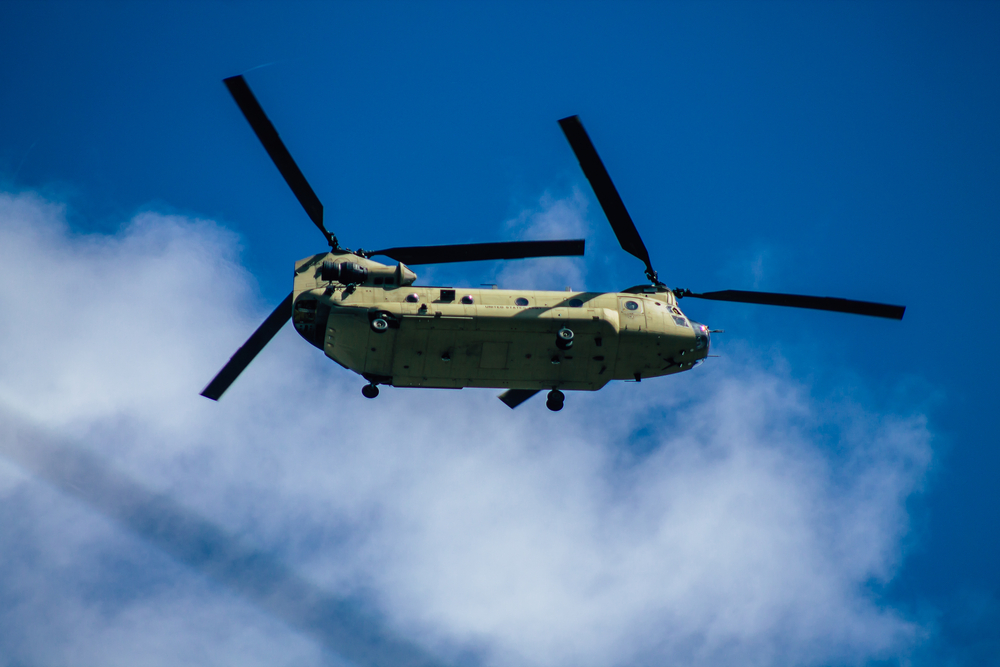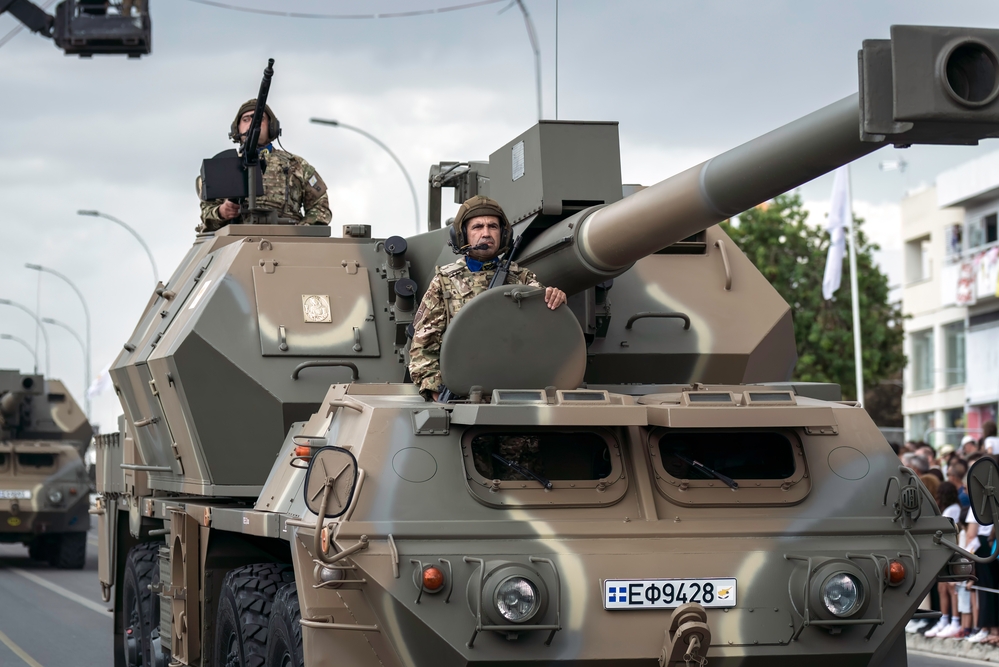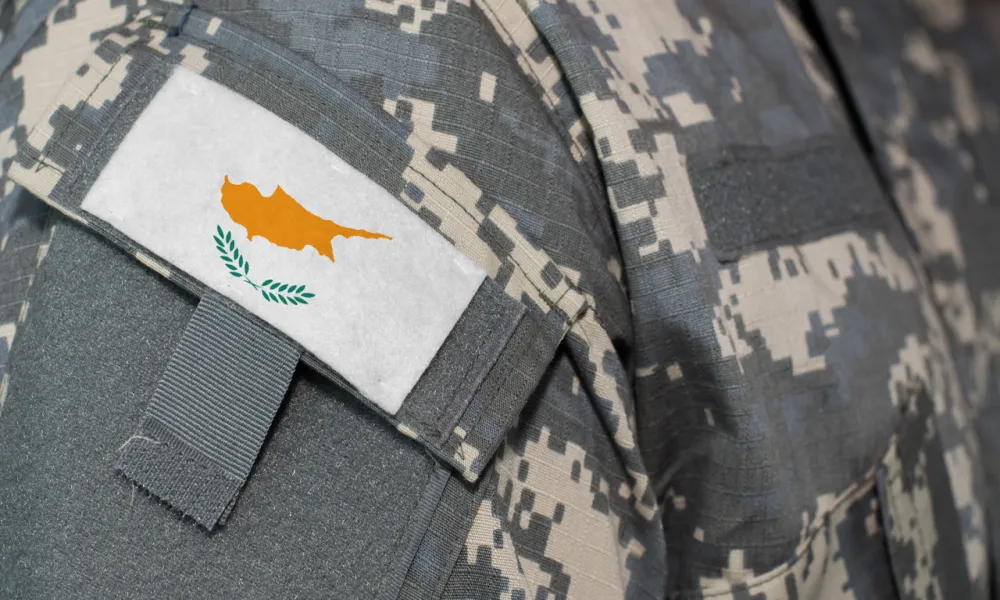Plans are currently underway to spend close to €300 million on upgrading and expanding the ‘Evangelos Florakis’ naval base in Mari and the ‘Andreas Papandreou’ airbase in Paphos, the geopolitical implications of which remain to be seen.
Speaking to Politis to the point, analysts note that the costly upgrades – mainly for use by American and European allies – could improve Cyprus’ standing among its partners and further highlight its value in a volatile region. But they could also provoke countermeasures by Turkey while making Cyprus more dependent on an increasingly unpredictable American foreign policy, with ramifications on how the US chooses to deal with the island’s division.
President Nikos Christodoulides said earlier this week that the government is intensifying cooperation with foreign governments on defence projects, including the air and naval bases. He noted American interest in the upgrade of the airbase and French interest in modernising the naval base.
A region in flux
Following developments in the region, mainly in Gaza, Lebanon and Syria, Cyprus responded effectively to foreign requests to facilitate evacuations, humanitarian and peacekeeping operations. This, in turn, prompted considerations to enhance Cyprus’ capacity to respond to requests to host military planes, warships and submarines for such purposes.
According to one informed source, the thinking behind the development of costly, permanent infrastructure is to further align Cyprus with its partners and show that it may be small, but it is a credible, consistent and important partner that can have a role in the Eastern Mediterranean.
The political value gained from this investment is greater than any military hardware that Cyprus may wish to buy, said the source. International relations are not static and the situation in the region remains unpredictable. The government is using the opportunity to improve relations with powerful allies, they added.
The government clearly sees deeper security ties with big, friendly powers as some kind of additional safeguard against its own existential threat, with Turkey continuing to control 37% of the island.

Mari mega project and rising costs for Paphos base
The source said the Americans have already sent a technical team to the Paphos airbase twice, and are cooperating with the Cypriot authorities to develop plans for its upgrade. These include expanding the runway and aircraft parking area to allow more planes to land, as well as providing facilities for refuelling, personnel and security.
Initial estimates had set the modifications at around €10m-€14m, though an informed source said additional requests will likely increase the price tag fivefold, with estimated costs now at €40m-€50m. The project could take around one-and-a-half to two years for completion.
Reports suggest the US will contribute to the cost of the airbase upgrade, though no indication has been given, publicly at least, as to what degree. The source expressed confidence that partners would make significant contributions to works on both bases.
Regarding the naval base, the project is much bigger, currently estimated at €200m-€220m, raising questions as to the chances of completion, given the collapse of a series of mega infrastructure projects to date.
Studies are currently underway on an upgrade that would allow the hosting of large warships and submarines at Mari. The government is seeking funding from the EU, having already spoken with European Commission President Ursula von der Leyen. France and other European countries have also shown an interest in the project, which is expected to take two to three years to completion.
In addition, the US is in the process of building a helipad near Mari, providing facilities for US choppers to land there, maintain the aircraft and disembark personnel, giving the US greater flexibility to patrol the region.
Geopolitical implications for Cyprus and region
The government has stressed that both the naval base and airbase will remain “Cypriot interest” and “Cypriot owned”. Control will not be ceded to others. It insists that any facilitation afforded foreign partners will be for humanitarian and peacekeeping missions only, and that under no circumstances will they be used as launching pads for offensive missions.
This, of course, also depends on how both parties interpret ‘humanitarian and peacekeeping’ missions but also on whether the nature of the agreement with Cyprus’ partners changes over time.
A defence source noted that the big actors in the region, such as the US and France, have their own aircraft carriers to carry out offensive operations and don’t need the Cyprus Republic for that.
However, long-standing commentator and analyst on international affairs James Ker-Lindsay had this to say:
“In business, Americans have a reputation for renegotiating deals after they’re supposedly signed and sealed. Trump is notorious for this. We’ve seen it time and time with the tariffs. Any agreements should perhaps be treated with caution.”
Former Turkish Cypriot negotiator and international relations scholar Kudret Özersay noted the practice of presenting such agreements as connected to humanitarian and peacekeeping operations in the Middle East, including in the past with Russia.
“I understand Turkish authorities and decision makers are not reading this as such,” he said.
“Under the current circumstances in world politics, Turkey is not naïve on these matters. Perception on the Turkish Cypriot and Turkish side is that this is something definitely connected to security matters and military, not something limited to humanitarian purposes.”
Özersay argued that military investments made today for humanitarian purposes could within a short period of time, depending on regional or world circumstances, suddenly turn into military bases.
“I don’t think they will be able to convince Turkey under these circumstances. It is a naïve approach.”
Recently, the British government came under fire over allegations of carrying out military and intelligence operations in Gaza and Yemen from its own bases in Akrotiri, located between Paphos and Mari. While the Cypriot government has no say over such operations, it is believed London briefs Nicosia on an ad hoc basis, depending on the circumstances.
Cyprus’ own strengthening alliance with Israel has also raised eyebrows in some quarters, given the sheer extent of the bloodshed in Gaza resulting from Israel’s offensive to take control of the Strip and release the hostages. The relationship has put Cyprus in a difficult position. On the one hand, it improves ties with a regional power and Washington by extension, gaining a missile defence system too, but on the other, it watches awkwardly as a humanitarian disaster unfolds just across its shore.
At the same time, Turkey has upped its opposition to Israel, banning Israeli ships and military cargo destined for Israel from its ports. This raises the possibility that Israel’s allies will seek other routes to send shipments, including via Cyprus, giving the Cypriot authorities food for thought.

Pros and cons
Analyst Ker-Lindsay welcomed the significant shift in Cyprus’ relations with the west, seeing it as a positive for the country, compared to its less beneficial alignment with Moscow in the past.
He noted that for a while after EU membership, the country struggled to shake off its predilections for the non-aligned movement. Now, relations with the US and the western alliance have improved greatly, a shift not gone unnoticed.
“Back then, Cyprus was accused of being a single-issue EU member state. Cyprus’ handling of the Lebanon crisis in 2006 changed everything,” he said.
Ker-Lindsay argued that after Lebanon, it became clear that Cyprus is Europe’s Middle East outpost.
“Cyprus doesn’t really feel integrated into southeast Europe and the Balkan structures. It’s the relationship with the Middle East that makes it valuable.”
“The clearest signal that Cyprus was being taken seriously was when Christos Stylianides was appointed European Commissioner for Humanitarian Aid and Crisis Management” in 2014, rather than getting the usual Health or Consumer Affairs portfolio, he added.
While Cyprus can’t be fully integrated into NATO or European defence structures, it can do a lot, and enhancing its capabilities on the island makes a lot of sense, said the analyst.
Özersay, on the other hand, warned that this would probably encourage Turkey to take additional security measures – new bases, more troops, new technologies transferred to the island – and potentially lead to escalation rather than deterrence.
“For example, one can expect a new naval base attempt of Turkey to be built in north Cyprus. Or maybe an increase in the number of armed forces stationed on the island in order to maintain the balance of power in and around the island.”
Dependency on US strategic partnership
On the Cyprus problem, on the one hand, there is the view that so long as Cyprus remains useful as a partner, the international community is happy to keep the ‘peace process’ on life support so as not to upset the apple cart, particularly during a period of great upheaval in the region.
However, Özersay, noted that an enhanced US-Cyprus strategic partnership would make the current government increasingly dependent on the US administration and less able to reject new initiatives or ‘outside the box’ thinking on the Cyprus problem.
“This dependency will create a vulnerable situation for the Greek Cypriot leader because if at one point, the US foreign policy is aligned with Turkey on the Middle East (Syria, Israel), then the US may take an initiative with respect to Cyprus and in that case, it won’t be easy for the Greek Cypriot leader to reject or refuse an initiative of the US in coordination with Turkey,” he said.
The former negotiator said the Abraham Accords between Israel and a number of Arab states give an indication of the kind of pragmatic approach the Trump administration follows, focusing on day-to-day trade and relations, not territorial disputes or sovereignty.
US involvement in the Cyprus problem would unlikely involve talks on a classic federal solution or on creating a new partnership. The first step would likely be a dialogue on a commercial initiative involving all parties, putting aside legal status and recognition. A more pragmatic approach, pushing direct activities between all relevant actors, similar in nature to the Abraham Accords, said Özersay.
He added: “We need to understand clearly that the Cyprus problem is not a problem between the two communities. We are located in an area where there are too many interests, expectations and concerns of regional and international actors. It is not reasonable to expect the two sides to resolve it.”
Özersay noted that he was not in favour of imposing a solution on Cyprus. At the same time, until and unless international actors’ interests are involved, no one will genuinely support a Cyprus process.
“What will remain will be conflict management, and negotiation for the sake of negotiation.”

Build links, keep your head down
Another possibilty, given the current shape of world affairs, would be for Turkish President Tayyip Erdogan to decide one day, when the conditions are ripe, to approach the transactional and unpredictable US President Donald Trump with an offer he can’t refuse. Ever the real estate magnet, Trump showed much enthusiasm for turning Gaza into the Riviera of the Eastern Mediterranean, with little regard for the history of the place or the dignity of the Palestinians living there. What if Erdogan proposed to Trump an ‘exciting’ project on Varosha?
This would end all hopes of a Cyprus solution, give nationalists a solid narrative of US/western betrayal and cement the division permanently.
Asked to comment, Ker-Lindsay acknowledged that partners were not dealing with a normal America anymore. Cyprus needed to keep its head down, work quietly and diligently, building links and making itself valuable, he said.
